Discover the journey from youthful optimism to seasoned wisdom in this blog post. Explore how collecting tools and methods over a 15-year career has shaped my approach to emotional regulation, stress management, and personal growth. Join me in addressing the ‘runout’ phenomenon—where accomplished lives sometimes feel stagnant—and learn strategies for overcoming it, finding purpose, and creating meaningful connections. Perfect for high-achievers and visionaries questioning their next steps.
When I started my career, I believed that things would become easier with time. Looking back, it might have been the optimism of youth that kept me motivated. The truth is that the more we know, the more we know what we don’t know.
Along the way, I started collecting tools and methods to help me regulate emotions, lower stress levels, create better boundaries, build relationships, foster a positive/growth mindset, communicate better, and so on. I have done it all. At first, it started with me wanting to become a better human being. Then it turned into this infinite curiosity and later on into my search for a better coping mechanism.
It is almost ironic, but when I work with my clients in groups or one-on-one sessions, I tell everyone that I have a toolbox, and it is up to them to pick the one that fits most. This toolbox is based on a 20-year journey of me trying to create a meaningful, self-determined, and happy life. The irony is that I haven’t found the one magic tool that makes everything happier. Instead, I find myself at a crossroads. Perhaps you, too?
Table of contents
- The accomplished life that doesn’t feel like it.
- Experiencing Runout
- It is not burnout, midlife crisis, or languishing – it is different!
- Is it worth the risk? And should I continue?
- How to overcome Runout
- But simply being fine isn’t the answer to your stress.
- How to let go of stress so you can see the Runout for its thrill, not for its risk?
- Who do you need to recharge your batteries?
- Picking fights for no reason – what is that all about?
- Positive Psychology and the Runout
- In the end, it is all about community
The accomplished life that doesn’t feel like it.
I have had an incredible life so far. I have seen a big chunk of our world, been exposed to different cultures, and had the privilege of living between different cultures. I am not famous. If that is part of your definition of success, this article may not be for you.
The other day, I called my best friend and announced that I was depressed. Her immediate reaction was not only brilliant but to the point. ‘Sweets, you are not depressed. You are bored.’
My jaw dropped, and I simply stared into the phone and had to admit that she was right. “It felt like something hit me head-on and woke me up. She continued: ‘This is what happens if everything is aligned. Everything you ever worked for has turned into reality. There is nothing that you have to fight for. There is no problem. And you are trying to create a problem.’
Don’t get me wrong—I still have big plans for the upcoming years of my life. I am certainly not short of goals, motivation, vision, or grit. I am sure that you feel the same way.
I love what I do. I work with people around the world and gain insights into incredible projects. But sometimes, some questions pop up: Why, and what is the bigger purpose? Do I have more in me? What do I need to get over this?
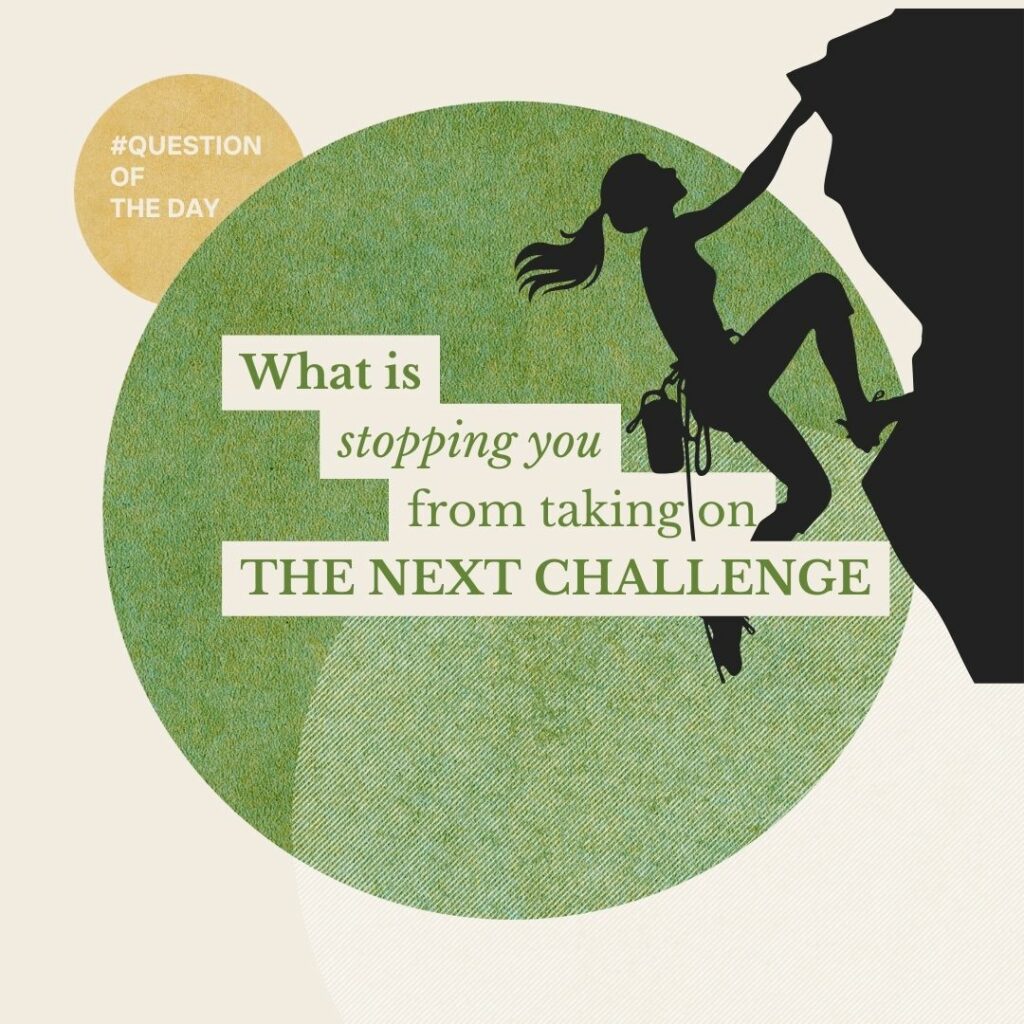
Experiencing Runout
I am not the only one who feels this way. The problem is that these feelings pare with shame for most socially aware people. We (I assume you feel the same, if you are still reading this) are certainly not blind to what is happening in the world. Questions such as: ‘How can I complain about a lack of purpose or happiness when other people don’t have enough, have to fight wars, and overcome life-threatening diseases?’ might pop up.
That’s where the term Runout comes into play.
It is not burnout, midlife crisis, or languishing – it is different!
I have been thinking about this for a while. I’ve dug deeper into burnout, midlife crisis, languishing—you name it. But none of these terms describe what I am and others are going through.
In alpine climbing, Runout describes the distance between a climber and their last piece of protection – a long Runout refers to the area below a climbing route where a climber would land in the event of a fall. It also relates to routes where the anchors start spacing out more the higher you climb.
Let’s say you have been climbing for most of your life. You know what you are doing; you’ve got this, and every time you attempt a new route, it is a thrill. The younger you are, the bigger your climbing community is. More people support you, encourage you to move forward, and give it another push. The older we get, the more the community shrinks. Your climbing is flowing, but for some reason, it seems that the next bolt is just moving away further and further. Some people stop as a result of this. They are not only facing Runout, they are run out. They may have even climbed the highest peaks and easily overcame various challenges. However, now they are stuck between the bolt they hang on and the space toward the next bolt.
Is it worth the risk? And should I continue?
Here, they find themselves questioning why they should continue, just to swing back to the feeling that there is more to be done, achieved, and contributed.
It is the space between the current bolt and the next. Can you do it? The forgotten dreams pop up momentarily, just to be distracted again by loneliness. Nevertheless, being grateful for everything that has happened in life so far. But then there is the pressure and stress of uncertainty. Can I do it? Should I do it? Is the Runout too long, and how hard will I have to work if I fall?
It is not languishing; it is a reassessment of life. It is not a midlife crisis in which you have regrets, anxiety, feelings of hopelessness, etc. It is the sensation of whether to continue the climb or stay where you are, where everything is simply fine.
How to overcome Runout
You have never been a simply fine person. Simply fine is your old schoolmate who didn’t have high aspirations and wanted a safe job, a happy family, and a simple life. Traveling to places like South Africa or Columbia seems too little on the edge for them. Instead, it is Florida, the South of France, Mallorca, or similar places. That’s fine, and you might even join because you want company. But in all honesty, it is not your cup of tea.
But simply being fine isn’t the answer to your stress.
Let’s rewind this a little bit. The pressure and stress that you are experiencing seem to be created by your environment. Since the pandemic, this has certainly been the case for many, especially when working in a company trying to make up for lost profits. However, the Runout you are experiencing isn’t that. This pressure might exaggerate it, but you are in a safe space. So where is this coming from?
What I found in my search for understanding what is happening is that I am the one who is creating the pressure and the stress with the endless to-do lists and wanting to finalize everything at the same time. Building up stress without letting go of it. Emily Nagoski, PhD, refers to this as never closing the stress cycle but instead building up even more stress – kind of avoiding facing the Runout. Some might call this procrastination. But that’s not it. Things are getting done.
How to let go of stress so you can see the Runout for its thrill, not for its risk?
One of the most effective ways to close the stress cycle is to exercise for at least 30 minutes daily. Personally, I need at least 1 hour to get rid of all the stress hormones I build up in my body throughout the day.
In addition, I need company. As an introverted-extravert, I find it very difficult to balance being around people and creating enough space for myself to recharge. Nevertheless, I need people. We all need people; we are communal beings, and interactions are a significant component of who we are. We don’t exist really without the people around us.
Who do you need to recharge your batteries?
I love all my friends dearly, but some have the magical ability to make me feel alive again. It’s people that I can hang out with without necessarily having to talk. People that want to enjoy the moment and life for what it is. No business, money, plans, politics, or unloading of problems, and the ‘oh, I am so busy’ talk. Just easy conversations. That is what recharges me personally and helps me de-stress and close the stress cycle. Who are the people you need around you?
Picking fights for no reason – what is that all about?
I also realized that I pick flights to make myself feel alive. Not proud of it. So here is the thing when it comes to emotions. We focus much more on the difficult ones than the pleasant ones. It seems as if the status quo is joy and happiness; when we feel sadness or anger, we start paying attention to it, which is why recalling complex emotions is so much easier. Picking a fight brings up these emotions and creates some movement within the body. No matter if it is positive or negative. At least something is happening instead of feeling bored; at least that’s the case for me. It makes it seem like there is a problem that needs to be fixed. And aren’t we all about fixing things?
High-achivers are especially interested in finding problems and fixing them. But what if there isn’t a problem or what if we don’t want to face the actual problem – the how do I conquer the next Runout without feeling run out? What then? Well, apparently, I start creating problems where no problems are :-).
Positive Psychology and the Runout
For most of our lives, we have been told that the feeling of accomplishment comes from success. Success means achieving certain social and cultural milestones, some of which we have already declared as simply fine or boring. That’s why we strive for more and want the thrill of the climb. The problem is that the climb never stops, which is why we feel Runout. And that’s when we start facing a series of internal questions.
Positive Psychology revealed one significant aspect of happiness and inner fulfillment: it doesn’t come from simply achieving milestones in your life. It comes from the ability to help other people successfully through your skills.
This is where the cycle of Runout closes. To overcome the space between your current bolt and the next one, you need to feel motivated to give up your current position. The boredom that you are experiencing is simply an inner sign that you need to keep moving. To do so, you need your community to support you. To feel like this is meaningful, you need to support others.
In the end, it is all about community
We live in a strange world that makes us believe that what matters most is our well-being and that we no longer need the simple interactions with the people that create the society we live in together. We shop online, communicate via email and text messages, and are constantly busy, too busy to have a simple homecooked meal with friends in our beautiful home. And then wonder why all of this feels like it is meaningless. So yes, you are fine, you are safe, and you have everything you ever needed to achieve. Have gratitude for it, practice being present, and enjoy what you have, but don’t forget that you are part of a community, a network of people, and that life becomes meaningful through the interactions and support we create for one another.

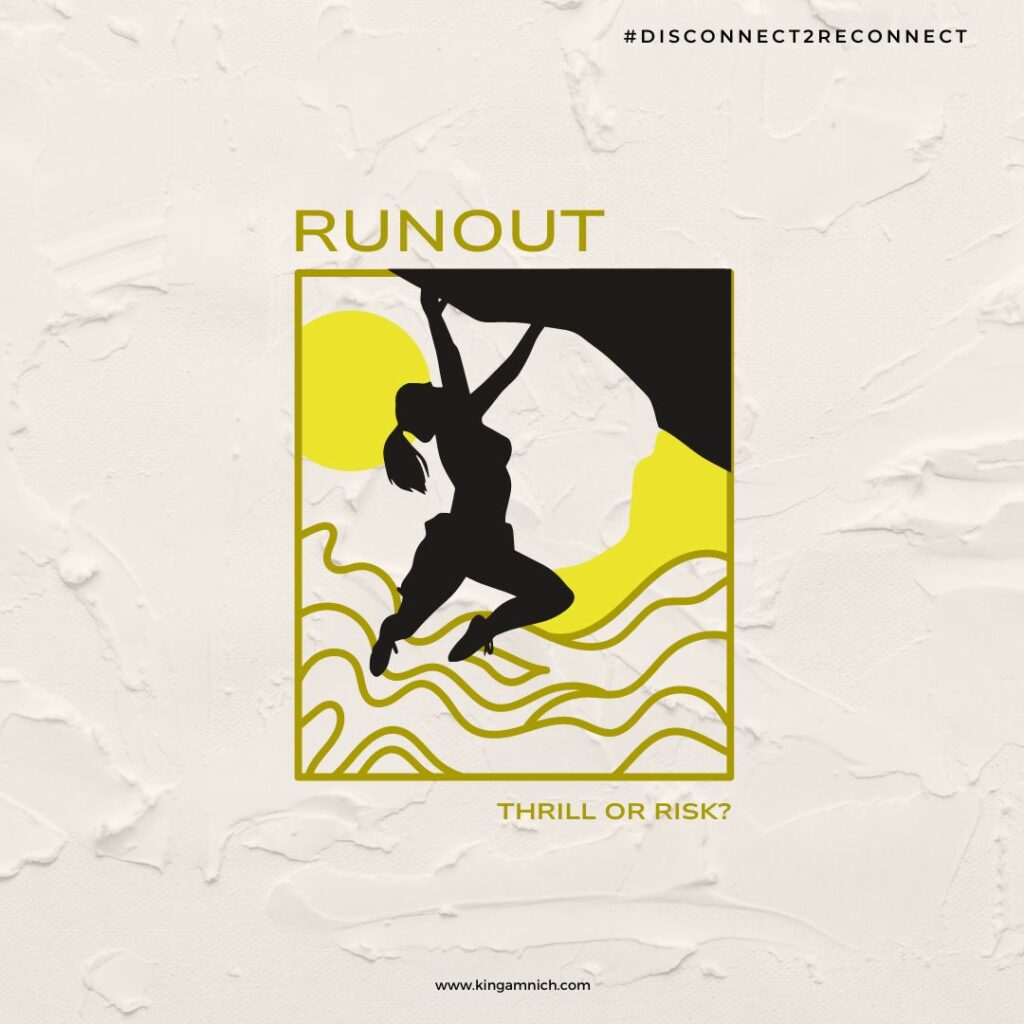
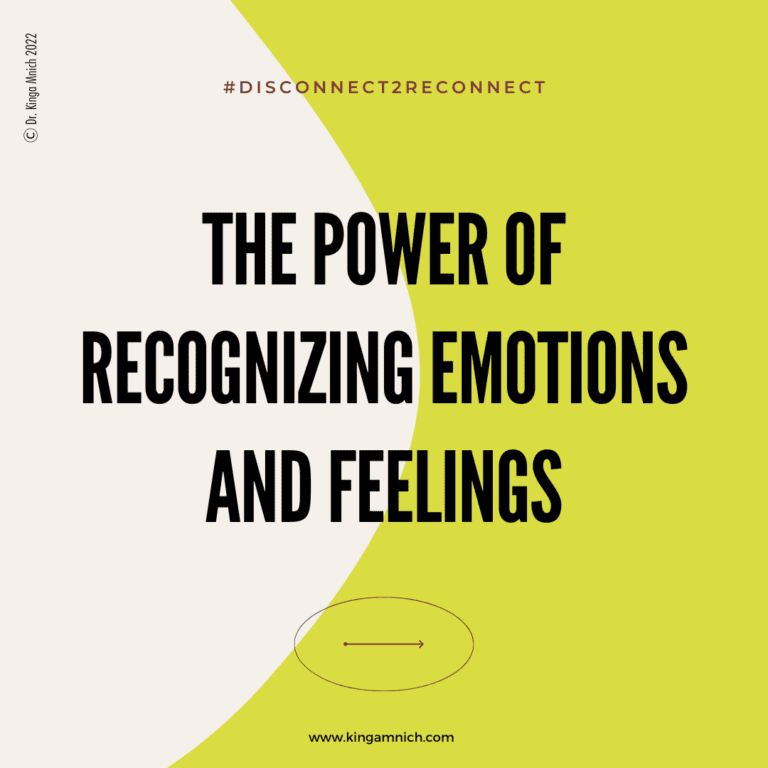
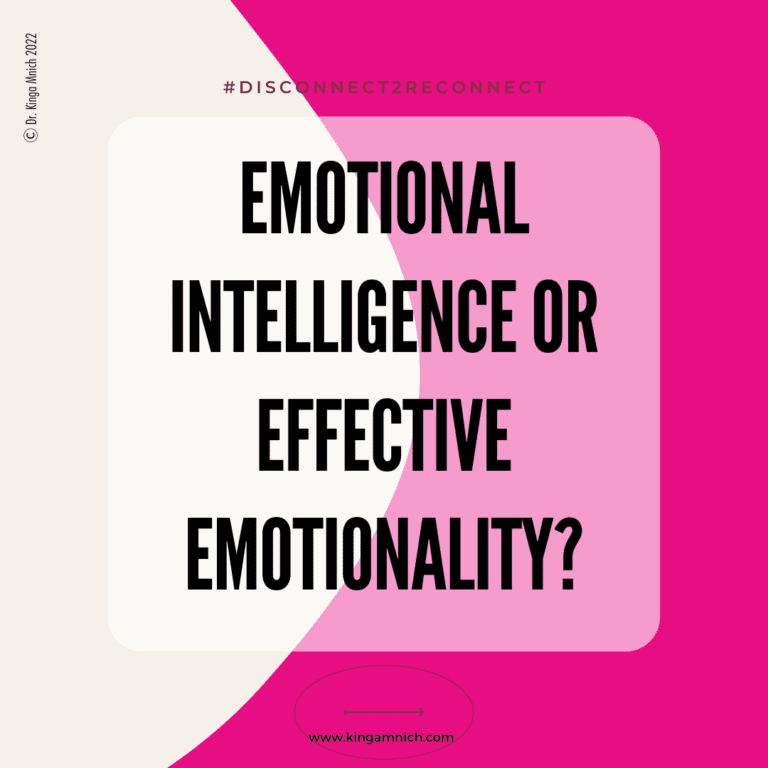


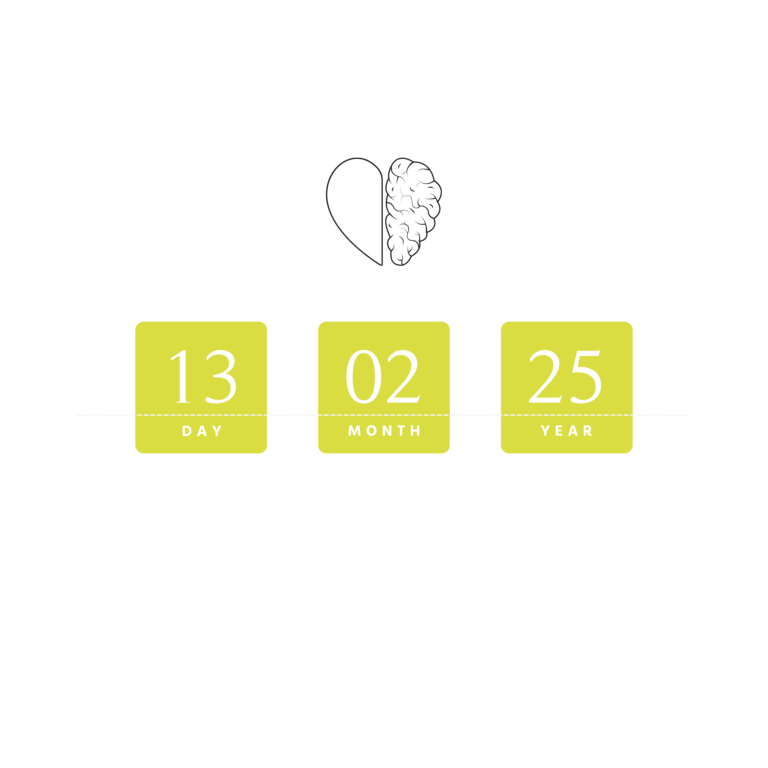

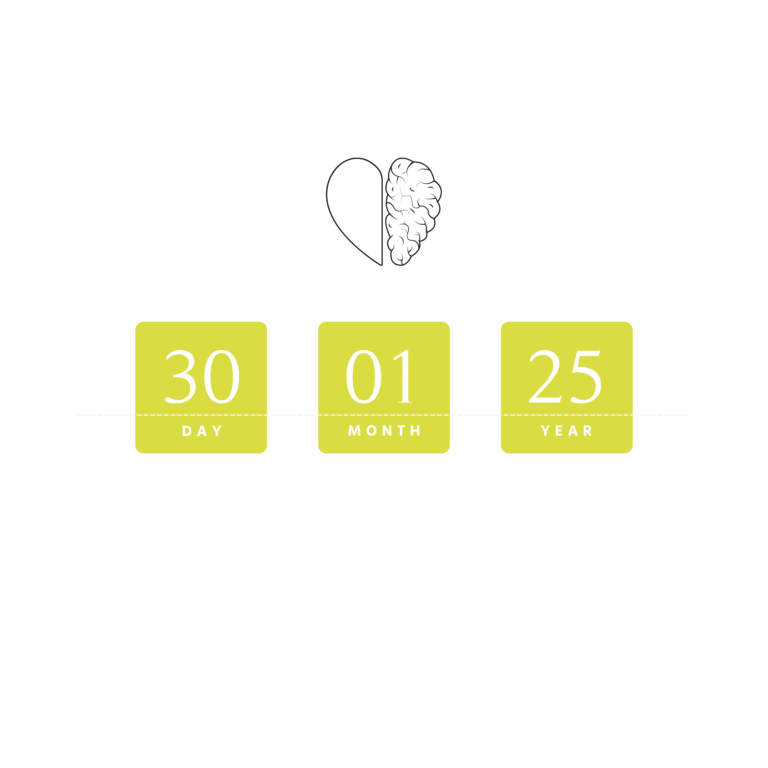




One Comment
I really enjoyed this and i resonated with the message …. be in community with others. that has been one of my goals for 2024. I have been working hard to stay connected and re-connect to people that I care about or have cared about. interestingly, I think that is how I stumbled upon this post. I recently reached out to a former colleague, Elizabeth (ELLA) lucas-averett to reconnect (we are having our first conversation in many years on this Friday) and she commented on your post which showed up on my feed. your message played itself out in real time and that was great affirmation. thank you for your timely words.